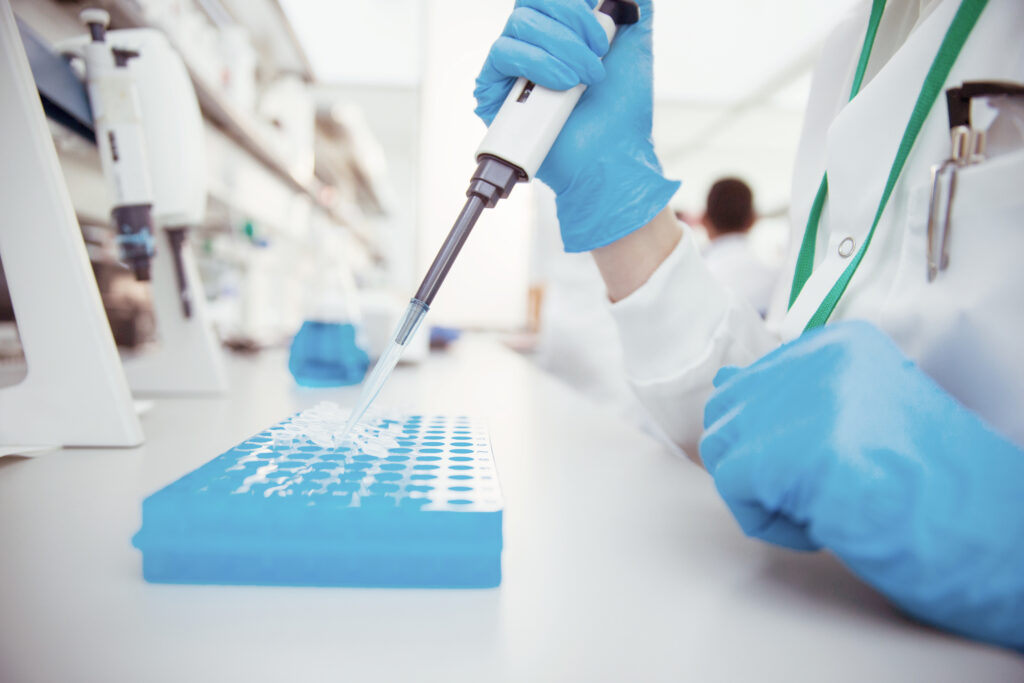At One Health Labs, we are invested in protecting your health, your privacy, and providing first-class testing services. We want you to trust our work wherever we do it—and we have the certifications that attest to our testing standards and rigor. We have a national network of CLIA-certified laboratories that support the on-site testing services we provide, and our Philadelphia location has an additional CAP accreditation. CLIA and CAP are the highest regulatory standards in our industry.
What does “CLIA-certified” mean?
CLIA stands for Clinical Laboratory Improvement Amendments. CLIA certification falls under the Center for Medicare and Medicaid Services and is part of the Department of Health and Human Services.
“The CLIA standards were put in place in 1988 to make sure all laboratories conducting human testing met certain standards for patient care and quality control for everything that happens in a laboratory,” says Brianna Sewell, director of laboratory operations. CLIA-certification is required by the federal government to conduct diagnostic testing on human samples. OHL provides services across the United States, though some states require state certification.
“Depending on which state a laboratory is in, they may also be required to have a state clinical lab permit, and this includes Pennsylvania, where we are headquartered, as well as New York, California and others,” says Sewell. OHL has state certificates allowing them to provide services in New York and California. Pennsylvania has a CLIA-certificate, a PA permit, and OHL took the extra step to get CAP-accredited.
What does “CAP-accredited” mean?
CAP stands for the College of American Pathologists and is the leading organization of board-certified pathologists. CAP is a membership organization with 75 years of experience in fostering excellence in laboratory testing and laboratory science.
CAP-accreditation means that a lab meets and exceeds the CLIA requirements. Their requirements are detailed for every step in the testing process.
“One Health Labs obtained CAP-accreditation to reassure our clients – physicians and healthcare systems – that we operated by the highest standards as a referring laboratory,” says Sewell.
OHL regularly reviews and updates the CAP Standards of Performance (SOPs) and conducts CAP-provided proficiency testing every six months to ensure that their labs continue to provide the highest quality testing. On-site inspections are facilitated at the state-level. Besides the accreditation itself, CAP provides tools for proficiency testing, training and continuing education programs, quality control tools, and on-site conducts laboratory inspections every two years.
Why are CAP and CLIA certifications important?
When considering what lab to choose, healthcare providers and systems can feel confident in knowing that OHL follows a very stringent set of standards through CLIA and CAP to ensure the highest level of testing quality for our laboratories and safety standards for our testing services.
